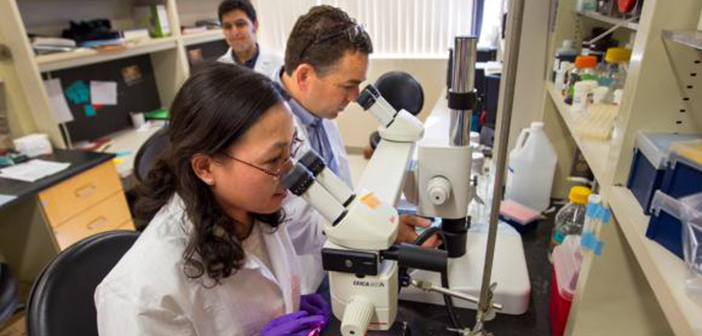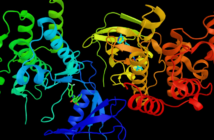Researchers show how mutations lead to a rare developmental and potentially degenerative disease.
In rare cases—for instance, among siblings in two families from Pakistan and Oman described in a new study—children have been born with an unnamed neurological disorder. Now researchers not only have identified the genetic mutations involved, but also replicated them in lab cultures and mouse models to produce an initial understanding of how the mutations cause the disease.
The study in the Proceedings of the National Academy of Sciences highlights both new medical and scientific opportunities, says Eric Morrow, MD, PhD, associate professor of biology and of psychiatry and human behavior at Alpert Medical School.
“This is a clear, new neurogenetic disorder due to mutations in [the gene]GPT2,” says Morrow, who sees patients at Bradley Hospital and is affiliated with the Brown Institute for Brain Science. “In addition to the relevance this has to the diagnosis of developmental disorders, and potentially therapeutics, it is also a window into how the brain develops and how the brain functions.”
The paper reveals specific findings of basic neurodevelopment, Morrow says. GPT2 is expressed in the nucleus of cells, but the enzyme it generates appears vital to metabolic pathways in the mitochondria. The consequences of the mutations appear to be in leaving developing brains without biosynthetic abilities to grow properly, and to deficits in metabolites that could help prevent degeneration.
The G in the gene name stands for glutamate, an important neurotransmitter that governs how neurons connect and interact. “To find a glutamate metabolizing enzyme that is associated with a brain disease is an opportunity to understand how that neurotransmitter might work or be modulated,” Morrow says.
Click here to read more.




